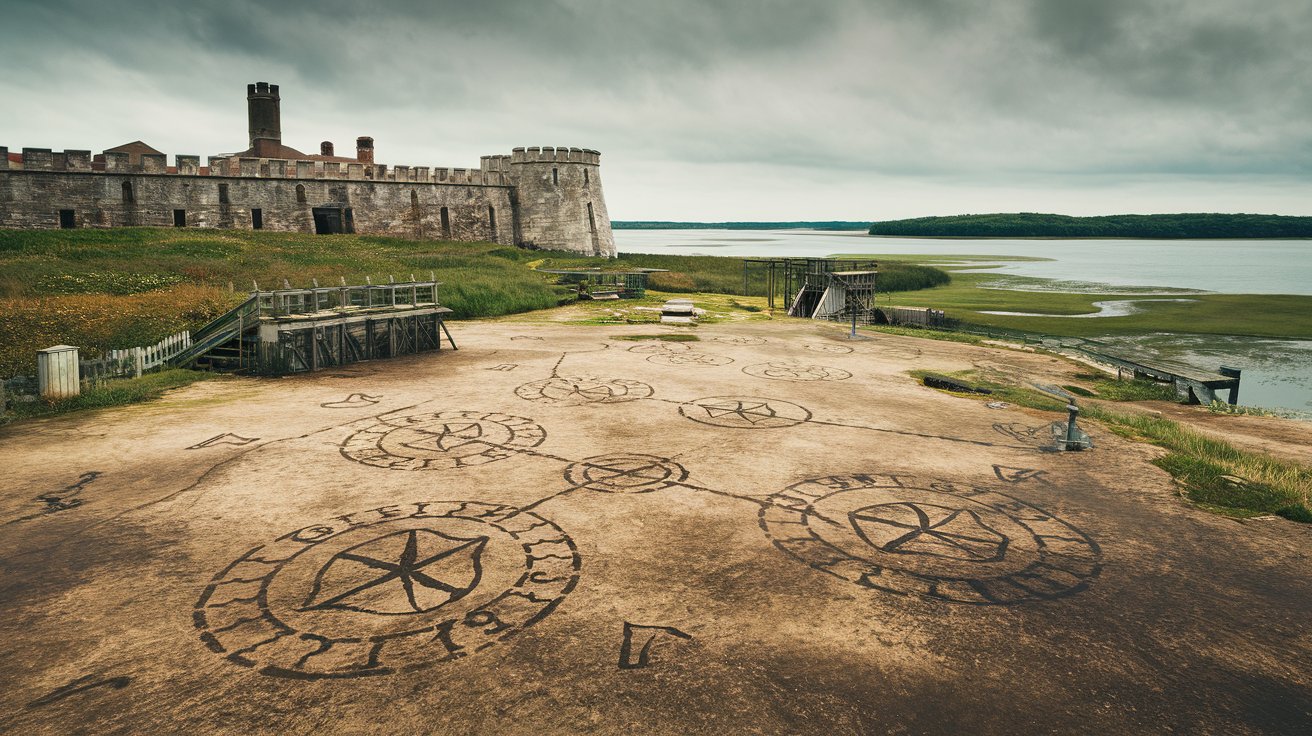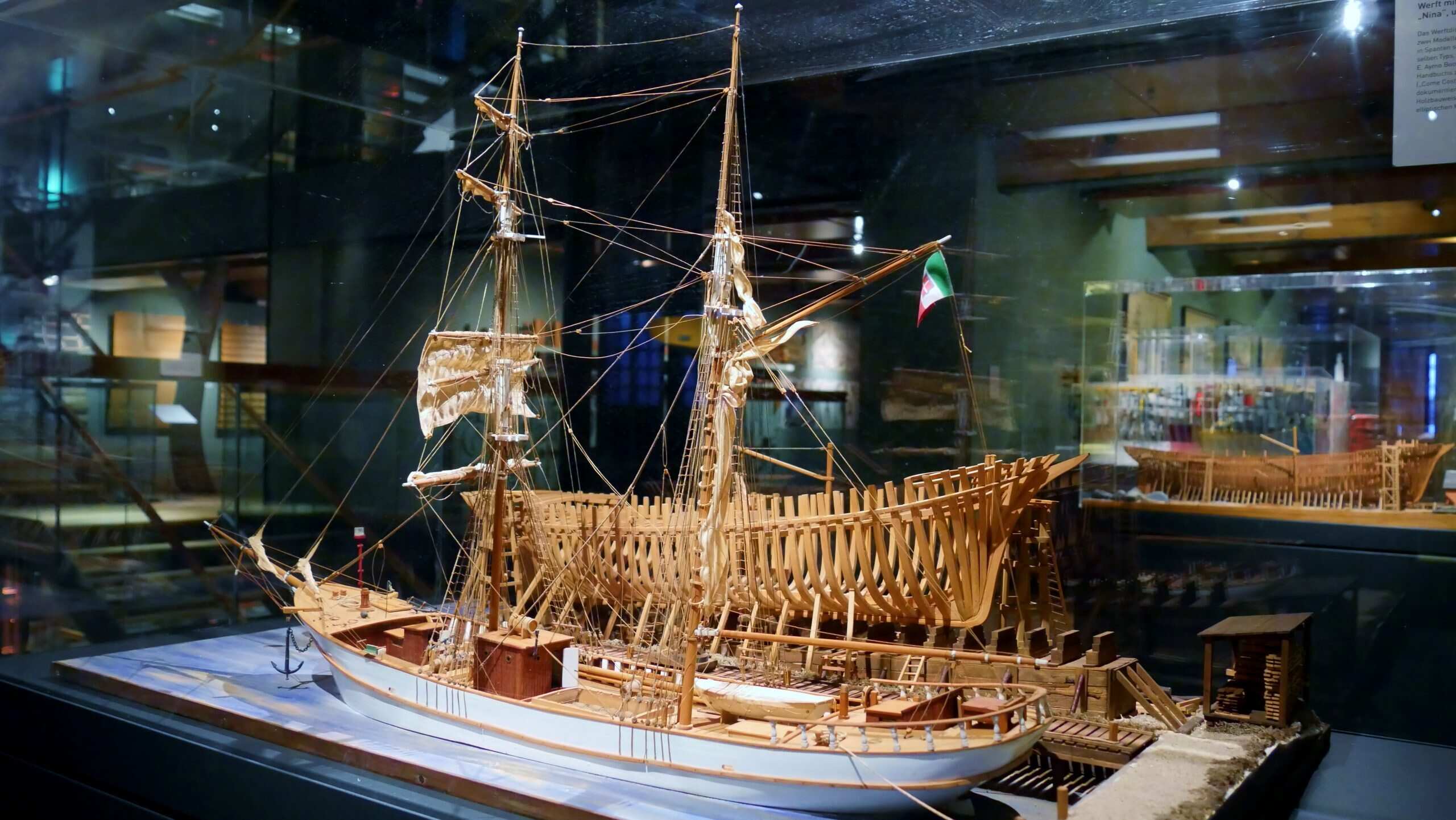
What happened to the Roanoke Colony? This question has puzzled historians for centuries. In 1587, 117 English settlers arrived on Roanoke Island, aiming to establish the first permanent English settlement in North America. Led by John White, they faced numerous challenges. When White returned to England for supplies, he was delayed by war. Upon his return in 1590, the colony had vanished, leaving behind only the word "CROATOAN" carved into a tree. Various theories have emerged, from natural disasters to assimilation with Native American tribes. Despite extensive research, the fate of the Roanoke colonists remains one of history's greatest mysteries.
Key Takeaways:
- The Roanoke Colony, established in 1587, remains a mystery. Theories range from natural causes to assimilation with Native Americans, sparking ongoing debate and cultural significance.
- Despite extensive research, the fate of the Roanoke colonists remains unsolved. The story has inspired literature, art, and even a horror movie, reflecting its enduring cultural significance.
The Roanoke Colony: A Brief History
The story of the Roanoke Colony is one of the most enduring mysteries in American history. Established in 1587, this settlement was meant to be the first permanent English colony in North America.
- In 1587, 117 men, women, and children set sail from England to establish the Roanoke Colony on Roanoke Island, now part of North Carolina's Outer Banks.
- John White, who had previously explored the area, led the colony. He was granted a charter by Sir Walter Raleigh to establish the settlement.
John White's Departure and Return
John White's journey back to England for supplies marked a turning point for the Roanoke Colony. His delayed return added to the mystery of the colony's fate.
- John White left the colony in 1587 to return to England for more supplies and settlers.
- Due to the English naval war against Spain, White was delayed and did not return until 1590.
- Upon his return, White found the colony deserted, with only the word "CROATOAN" carved into trees as a clue.
Theories on the Disappearance
The disappearance of the Roanoke Colony has sparked numerous theories over the centuries. Each theory offers a different perspective on what might have happened to the settlers.
- Natural Causes: Some believe the colonists died from disease, starvation, or hurricanes.
- Native American Attack: Another theory suggests an attack by Native Americans, though no concrete evidence supports this claim.
- Assimilation with Native Americans: A popular theory is that the colonists assimilated into the Croatoan tribe, supported by English artifacts found in Croatoan villages.
The Croatoan Project
The Croatoan Project has provided significant archaeological evidence supporting the assimilation theory. This project has uncovered artifacts that shed light on the possible fate of the Roanoke colonists.
- Initiated in 1998, the Croatoan Project has found artifacts in Croatoan villages, including metal tools and ceramics that only English settlers could have owned or made.
Dare Stones: A Controversial Clue
The Dare Stones are a series of stones that some believe contain messages from Eleanor Dare, John White's granddaughter. These stones have sparked debate among historians.
- The Dare Stones were discovered in the 19th century and contain written stories and personal anecdotes from Eleanor Dare.
- While some consider the stones authentic, many scholars believe they are a hoax.
Fort Raleigh National Historic Site
Fort Raleigh National Historic Site preserves the history of the Roanoke Colony. This site offers a glimpse into the past and the mystery surrounding the lost colony.
- Located in Manteo, North Carolina, Fort Raleigh includes the Waterside Theatre, where "The Lost Colony" drama has been performed since 1937.
Jamestown: The First Permanent English Settlement
After the failure of the Roanoke Colony, the English established Jamestown in 1607. This settlement marked the beginning of a more successful English presence in North America.
- Captain John Smith led the establishment of Jamestown near the Chesapeake Bay.
- Jamestown was chosen for its strategic location and safety from Spanish ships and Native American conflicts.
Colonial America: A Melting Pot
The American colonies were a melting pot of cultures, with settlers from various backgrounds contributing to the development of the colonies.
- English settlers were the largest group, but significant contributions came from African, German, Scotch-Irish, Dutch, and French immigrants.
Colonization and Early Self-Government
The colonization of North America involved three major European powers: England, France, and Spain. England eventually took control of the eastern seaboard.
- England established 13 colonies that stretched from Maine to Georgia.
- These colonies developed their own systems of self-government, laying the groundwork for the American Revolution.
Economic Opportunities and Immigration
Economic opportunities in the New World encouraged early marriages and large families among the colonists. Immigration played a significant role in the population growth.
- Many people sought a better life in the New World, leading to increased immigration from Great Britain and Europe.
- Not all immigrants came voluntarily; some were convicts, political prisoners, or enslaved Africans.
Native American Relations
The relationship between English colonists and Native Americans was complex, with both peaceful interactions and conflicts.
- The disappearance of the Roanoke Colony remains a mystery partly due to the lack of clear evidence about Native American involvement.
Archaeological Evidence
Archaeologists have studied the Fort Raleigh area since 1895, uncovering various artifacts. Despite extensive research, the mystery of the Roanoke Colony's disappearance remains unsolved.
- European and Native American artifacts have been found, but no definitive answer to the colonists' disappearance has been discovered.
The "Melting Pot" Concept
The term "melting pot" describes the cultural blending that occurred in colonial America. This blending contributed to the development of a unique American identity.
- Despite their diverse origins, the colonists increasingly adopted English culture, language, and customs.
Scott Dawson's Theory
Scott Dawson, a Hatteras Island native and historian, has proposed that the colonists assimilated into the Croatoan tribe. His theory is supported by archaeological evidence.
- English artifacts found in Croatoan villages support Dawson's theory, though scholars remain skeptical without definitive proof.
The Role of Sir Walter Raleigh
Sir Walter Raleigh played a crucial role in the establishment of the Roanoke Colony. His vision for an English foothold in the New World was pivotal.
- Raleigh financed three voyages to North America and granted John White a charter to settle the area.
Queen Elizabeth's Support
Queen Elizabeth I supported Raleigh's voyages, seeing them as an opportunity to expand English influence and resources.
- Her backing was instrumental in the initial success of the Roanoke Colony, although it ultimately failed to establish a sustainable settlement.
The Impact on American History
The disappearance of the Roanoke Colony set the stage for future English settlements in North America. This event significantly influenced the course of American history.
- The failure of Roanoke led to the establishment of Jamestown, which became a more successful and enduring English settlement.
Archaeological Digs and Discoveries
Archaeological digs at Fort Raleigh have revealed various artifacts, contributing to our understanding of the colonists' lives and activities.
- Evidence of a metallurgy workshop from the exploratory voyages has been found, but the mystery of the colonists' disappearance remains unsolved.
Theories and Speculations
Numerous theories and speculations have emerged about the fate of the Roanoke colonists. Despite extensive research, no definitive answer has been found.
- Theories range from natural disasters to attacks by Native Americans or Spanish explorers.
Cultural Significance
The Roanoke Colony has become a cultural icon, symbolizing both the promise and challenges of early American history.
- The story has inspired literature, art, and even a horror movie, cementing its place in popular culture.
Historical Interpretations
Historians continue to interpret the evidence surrounding the Roanoke Colony, often drawing different conclusions based on the same data.
- This ongoing debate reflects the complexity and nuance of historical events, highlighting the need for continued research and analysis.
The Enduring Mystery of Lost Colonies
The story of lost colonies, especially the Roanoke Colony, continues to fascinate us. Despite countless theories and archaeological digs, the fate of the Roanoke settlers remains unsolved. From John White's cryptic "CROATOAN" clue to the Dare Stones controversy, each piece of evidence adds to the intrigue. The Croatoan Project and other archaeological efforts have provided some insights, but definitive answers are still elusive. The Roanoke Colony isn't just a historical puzzle; it symbolizes the challenges and uncertainties of early American colonization. Its legacy has influenced how we understand the complexities of cultural interactions and survival in the New World. As we keep exploring and debating, the mystery of these lost colonies reminds us of the enduring allure of history's unsolved questions.
Frequently Asked Questions
Was this page helpful?
Our commitment to delivering trustworthy and engaging content is at the heart of what we do. Each fact on our site is contributed by real users like you, bringing a wealth of diverse insights and information. To ensure the highest standards of accuracy and reliability, our dedicated editors meticulously review each submission. This process guarantees that the facts we share are not only fascinating but also credible. Trust in our commitment to quality and authenticity as you explore and learn with us.


